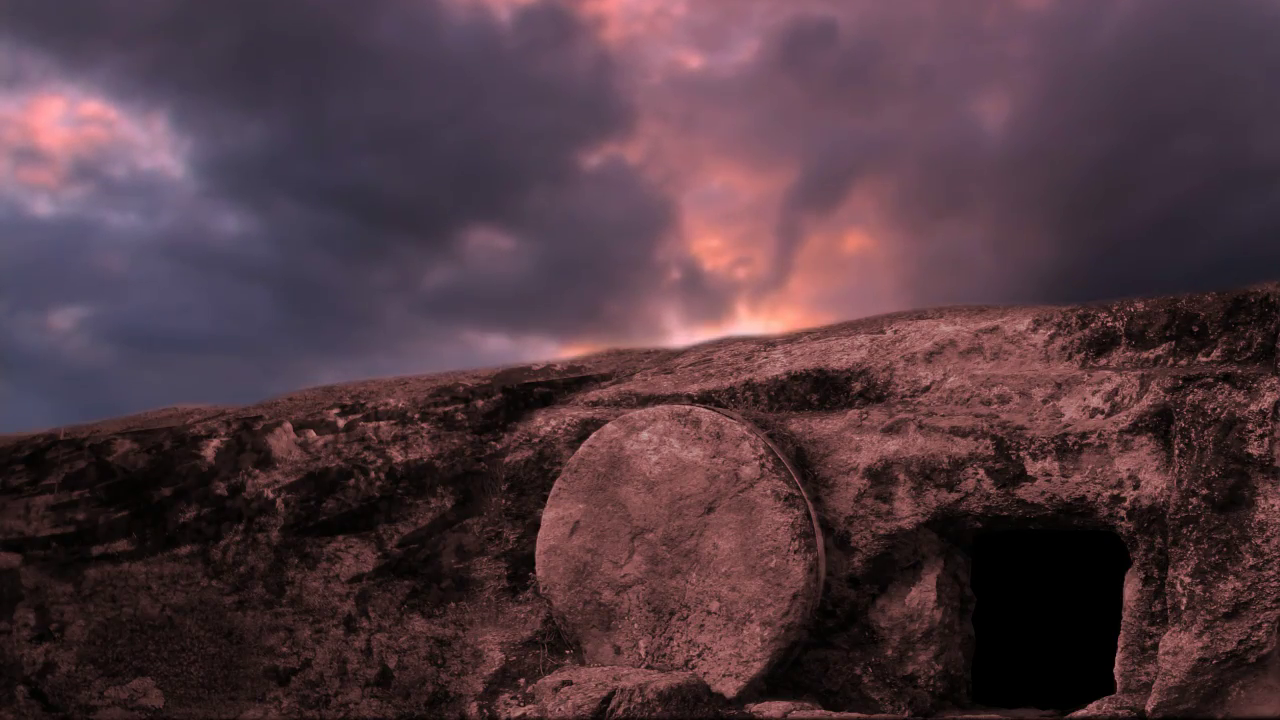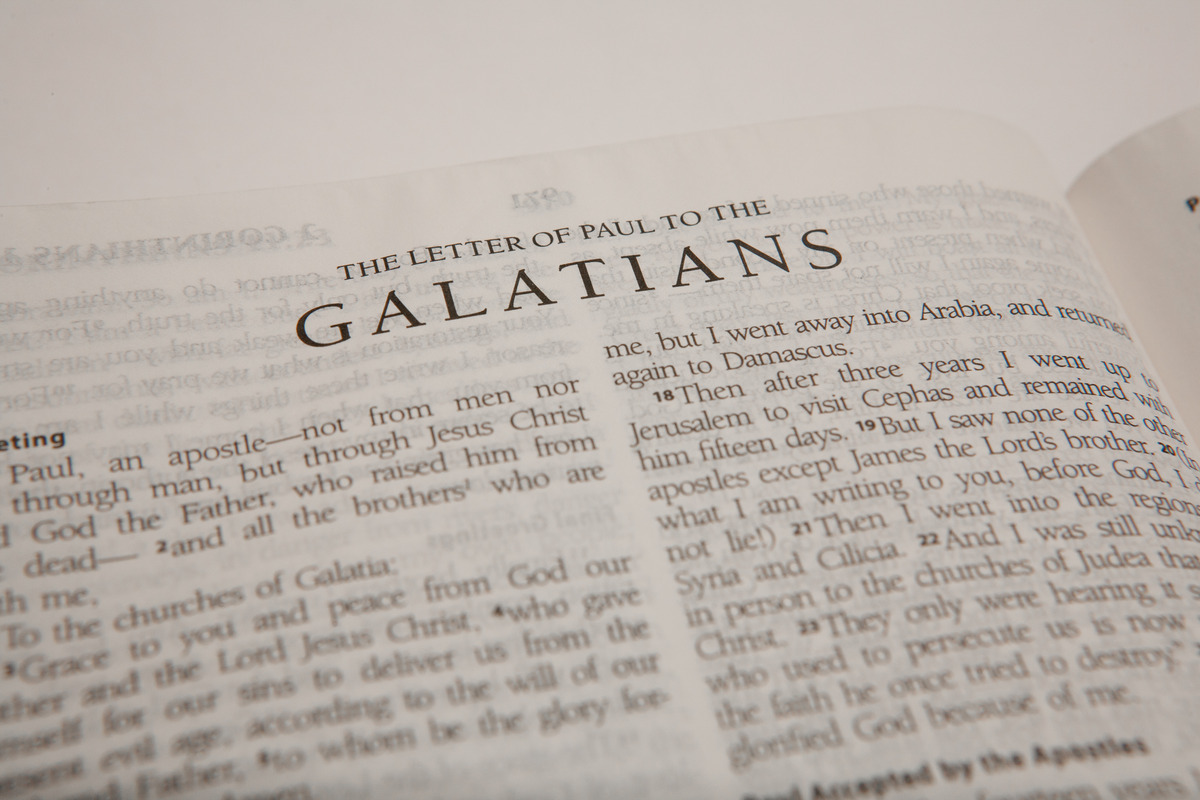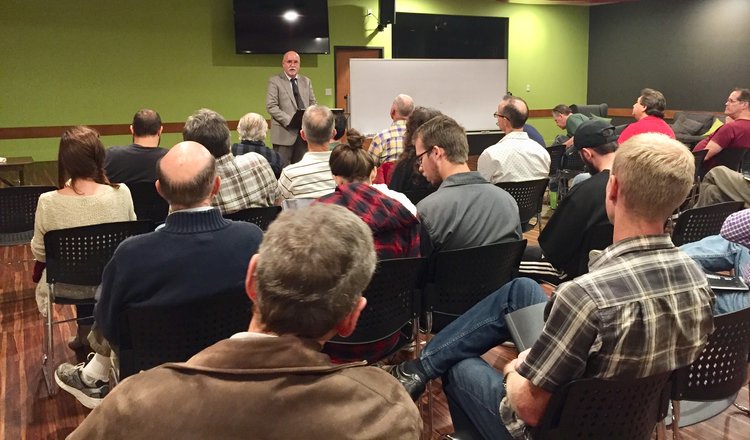What's Wrong in America and How to Fix It
 Friday, November 16, 2018 at 07:45AM
Friday, November 16, 2018 at 07:45AM This is well worth your time. Arthur Brooks and Ben Sasse tackle a host of important issues raised in Ben's new book, Them
Living in Light of Two Ages
____________________________
 Friday, November 16, 2018 at 07:45AM
Friday, November 16, 2018 at 07:45AM This is well worth your time. Arthur Brooks and Ben Sasse tackle a host of important issues raised in Ben's new book, Them
 Thursday, November 15, 2018 at 01:36PM
Thursday, November 15, 2018 at 01:36PM 
Here's the audio from the Wednesday night Bible study: The Witness of the Spirit -- Sproul, Frame, and Warfield
 Wednesday, November 14, 2018 at 02:33PM
Wednesday, November 14, 2018 at 02:33PM 
The Third in a Series of Sermons on the Book of Galatians
Paul opens his letter to the churches of Galatia by taking direct aim at the false gospel which those identified as Judaizers were preaching to the Galatians–and which many Galatians were embracing! The Apostle exposes the deceitful tactics the Judaizers used to infiltrate the Galatian churches spying on the liberty which Christians enjoyed. In response, Paul lays out the specifics of the gospel revealed to him by Jesus Christ–a gospel not of works, but of faith in Jesus.
No doubt, Paul was angry when he wrote Galatians. During his second missionary journey, Paul traveled throughout the region of Galatia, preaching Christ crucified–publicly placarding Christ (Galatians 3:1) to all who would listen. God graciously granted Paul the privilege of seeing many Gentiles converted from paganism to faith in Jesus, the Son of God. Many Jews who lived in the region also came to believe that Jesus Christ was Israel’s Messiah as promised throughout the Old Testament. They too embraced the same Savior the Gentiles had through faith. It was not long after Paul left the region that a group of false teachers, known to us as Judaizers, infiltrated these churches, undermining Paul’s authority and distorting the gospel which he had just preached to them. The so-called gospel these Judaizers were proclaiming was a different gospel from that preached by Paul, which was, in reality, no gospel at all.
The Judaizers were a group of Jews who apparently converted to Christianity once convinced that Jesus was Israel’s Messiah. But as zealous Jews, and fully committed to the law of Moses, they were not eager to see the ways of their fathers overturned. In addition to faith in Jesus Christ, they contended, Gentile converts to Christianity must also submit to circumcision and keep elements of the ceremonial law in order to be justified, just as they were doing. Paul describes how these Judaizers deceptively entered into the Galatian churches by spying on the liberty that the Gentile Christians were enjoying. They had even been able to pressure Peter and Barnabas into withdrawing from Gentile believers who did not keep ceremonial aspects of the Mosaic Law such as the dietary laws.
In chapter 2:11-14 of this epistle, Paul recounts how he was forced to confront Peter to his face in Antioch, since Peter was hypocritically living as a Gentile–Peter had acquired a taste for pork chops and honey-baked ham–but after a visit from a group of Judaizers, Peter began insisting that Gentile converts keep the dietary laws that he had given up keeping. “Do as I say, not as I do,” became Peter’s motto, a reaction arising from his fear of the Judaizers. As Paul saw it, Peter’s actions compromised the gospel, since the gospel has nothing to do whatsoever with human merit, circumcision, and the obedience to the law of Moses, but is instead based upon the life, death, burial, and resurrection of Jesus Christ.
In verses 15-16 of Galatians 2, we come to the very heart of Paul’s argument he will use throughout the rest of the letter. The apostle defines the gospel as a doctrine of justification by grace alone through faith alone, on account of Christ alone. Paul writes, “we ourselves are Jews by birth and not Gentile sinners; yet we know that a person is not justified by works of the law but through faith in Jesus Christ, so we also have believed in Christ Jesus, in order to be justified by faith in Christ and not by works of the law, because by works of the law no one will be justified.” Verse 16 has been correctly identified as “the doctrine of justification in a nutshell.” This is one of the clearest definitions in all of Scripture regarding the doctrine of justification, that is, of how we as sinners obtain a “right standing” before God.
To read the rest of this sermon: Click Here
 Monday, November 12, 2018 at 10:39AM
Monday, November 12, 2018 at 10:39AM 
Sunday Morning, November 18: We are working our way through the "Night Visions" of Zechariah as part of our series on the Minor Prophets. This week we come to Zechariah 5:1-14 and the visions of a flying scroll and a woman in a basket. What do these mean? Our worship service begins at 10:30 a.m.
Sunday Afternoon: Why are Christians obligated to join Christ's church? We will tackle that question when we take up article 28 of the Belgic Confession. Our afternoon service begins at 1:15 p.m.
Wednesday Night Bible Study (November 14) @ 7:30 p.m. We continue our series Apologetics in a Post-Christian Age. We are discussing the work of the Holy Spirit in relation to Christian evidences. This week we will consider B. B. Warfield's concept of the Witness of the Spirit.
The Academy (November 16): We begin a short series on the Eschatology of the Reformers. What did Luther and Calvin believe about the end times?
For more information on Christ Reformed Church you can always find us here (Christ Reformed Church), or on Facebook (Christ Reformed on Facebook).
 Sunday, November 11, 2018 at 03:26PM
Sunday, November 11, 2018 at 03:26PM 
Here's the audio from this week's sermon on the Minor Prophets from the Book of Zechariah: Click Here
 Thursday, November 8, 2018 at 10:56AM
Thursday, November 8, 2018 at 10:56AM  Wednesday, November 7, 2018 at 02:23PM
Wednesday, November 7, 2018 at 02:23PM 
The Second in A Series of Sermons on the Book of Galatians
Paul’s personal calling from the Risen and Ascended Jesus was to preach the same gospel which Jesus revealed to him. As Paul now understands, he was set apart by Jesus and called by God’s grace for this very task. In fulfilling that call the Apostle founded a number of churches in Galatia, preaching the gospel of Christ crucified throughout the region. But soon after his departure from the area, the gospel was under full assault, prompting Paul to write his epistle to the Galatians, one of the most direct and confrontational letters in the New Testament.
Last time, we worked our way through the opening verses of the Book of Galatians (vv. 1-9) which is, as we saw, Paul’s response to a serious situation developing in Galatia. Paul will describe how he had preached the gospel of Jesus Christ to the Galatians previously, publicly placarding Jesus Christ before their very eyes (3:1). But shortly after he departed the area, a group of false teachers, known as Judaizers, gained a foothold in these same churches. Teaching that in order to be justified (regarded as “right” before God), that in addition to placing one’s faith in Jesus, Gentile converts also must submit to circumcision and keep certain elements of the ceremonial law just as the Judaizers were doing. In other words, Gentile believers must believe in Jesus, but live as Jews. Paul’s gospel of Christ crucified was very disconcerting to these false teachers since it removes all place for human merit and good works as a ground of being declared “righteous” before God (“justified”). This “different gospel” which the Judaizers were teaching was in reality “no gospel.” Paul opposed them with everything in him.
In responding to the false teaching and accusations of the Judaizers, Paul sets out four points for the Galatians to consider in Galatians 1:10-2:14. First, Paul speaks of the origin of the Gospel he preaches. Second, he describes the nature of his call as apostle to the Gentiles. Third, Paul recounts his life as a Jew and explains his zeal for the religion of his fathers. Finally, he describes his two prior visits to Jerusalem and his dealings with the apostles, Peter, James and John, along with the rise of the Judaizing heresy, culminating in Paul confronting Peter about the latter’s apparent acceptance of this heresy.
We begin with verses 10-12, and Paul’s first point of defense. The gospel of Christ crucified is not a figment of his imagination. The gospel which Paul preached was personally revealed to him by Jesus. Amazed at the speed at which the Galatians had been taken in by these false teachers, Paul offers a lament of sorts, asking “am I now seeking the approval of man, or of God? Or am I trying to please man? If I were still trying to please man, I would not be a servant of Christ. For I would have you know, brothers, that the gospel that was preached by me is not man’s gospel. For I did not receive it from any man, nor was I taught it, but I received it through a revelation of Jesus Christ.”
The gospel is centered in the objective and historical work of Jesus Christ for us; his life, death, burial, and resurrection according to the Scriptures as in 1 Corinthians 15:1-9. In Romans 1:16-17, the gospel is defined in terms of the revelation of the righteousness of God in Jesus Christ. If preaching the gospel is recounting the facts of redemption, the charge of novelty made against Paul collapses since the facts surrounding Christ’s death and resurrection were common knowledge. Given the offence of the gospel and its character as a stumbling block to the Jew and foolishness to the Gentile (cf. I Corinthians 1:23), Paul could hardly be preaching this message in order to gain favor with men. He himself at one time had opposed the new sect of “Christians” with great zeal.
To read the rest of this sermon: Click Here
 Monday, November 5, 2018 at 10:52AM
Monday, November 5, 2018 at 10:52AM 
Sunday Morning, November 11: We continue our series on the Minor Prophets. Our text this week is Zechariah 4:1-14--the fifth night vision of a Menorah and two Olive trees. What do these mean? Our worship service begins at 10:30 a.m.
Note: Our New Members Class concludes this week in room 601 @ 9:00 a.m. Our topic is the responsibilities and privileges of church membership.
Sunday Afternoon: We are currently studying the Belgic Confession. Why do we as Protestants confess a "Holy and Catholic Church?" We will answer that question when we take up article 27. Our afternoon service begins at 1:15 p.m.
Wednesday Night Bible Study (November 7) @ 7:30 p.m. We continue our series Apologetics in a Post-Christian Age. We will continue to address the work of the Holy Spirit in relation to Christian evidences and coming to faith.
The Academy (November 9): We are working our way through the concluding lectures in our lecture/discussion series based upon Allen Guelzo's Teaching Company Course, The American Mind. This week's lecture is "The Rise of the Neo-Conservatives," which deals with the Reagan Revolution.
For more information on Christ Reformed Church you can always find us here (Christ Reformed Church), or on Facebook (Christ Reformed on Facebook).
 Sunday, November 4, 2018 at 03:16PM
Sunday, November 4, 2018 at 03:16PM 
Here's the audio from this morning's sermon on the Minor Prophets from the Book of Zechariah
 Thursday, November 1, 2018 at 08:39AM
Thursday, November 1, 2018 at 08:39AM 
Here's the audio from the Wednesday night Bible Study: The Witness of the Holy Spirit